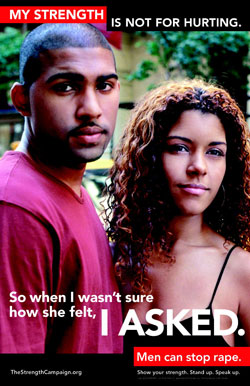When I heard the term 'environmental racism', I thought, "oh child, this is going to be interesting..."; I have very different ideas about ecology than most people today, and I definitely saw no possible connection between ecology and feminism or racism. But listening to the panel on Tuesday's brown bag talk "Exploring Environmental Racism in the Wake of MLK's Legacy" opened up some interesting avenues of discussion. The first is the issue above: what does ecofeminism even mean? What does environmental racism mean? What's the connection? At first glance, the idea of such a thing seems a stretch; the environment is the environment, and it effects everybody equally, and we all affect it in certain ways. This has nothing to do with race, gender, etc. However environmental racism points to this problem-- because the geographic distribution of races is unequal, different races are affected by different environmental conditions. In the metaphysical (i.e. before human intervention) sense, this is not racist, just correlative. The racism part comes in through the human-made. That is, because we affect our environments, we can create environmental situations that impact other people. When this environmental change affects people of a certain race disproportionately, this is environmental racism. There is of course then a question of intent: was the environment changed
because the affected parties were of a different (or the same) race, or was this coincidental? Is it even possible for this to be coincidental?
I have a problem with the environmental movement's premise that because the environment is worth protecting in some respects, it is everyone's duty to measures to protect it. My problem of course is not necessarily that people
shouldn't respect the environment, but that the idea that every environmental nuance is our personal responsibility, regardless of cause, is flawed. I find a difference between respecting the environment (not using resources lavishly and wastefully, preserving climate, reducing pollution) and putting it before individual needs and wants (using only resourses as absolutely necessary for subsistence, preventing environmental change in any respect, forbidding any human impact). I support the former, not the latter-- to clarify, I think individuals and entities are obligated to take responsibility for their impact on the environment, and
only their own impact. The implications then for enivronmental racism is this: individuals and entities should minimize their impact on others' environments, should keep their impact to their own corner of the environment. To the extent that their environment overlaps with others', there needs to be a recognition of the ways race affects geography, and therefore environmental distribution, how these overlaps may be racialized, and thus how to combat this complication.
Xavia Publius




